Resources
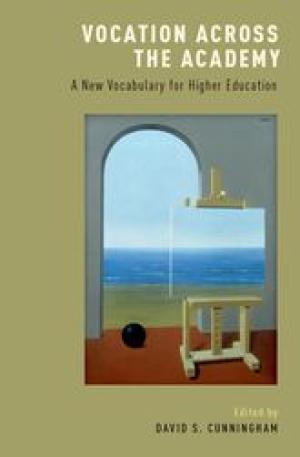
Click Here for Book Review The effort made by Cunningham and his co-contributors will provoke two questions for theological educators: What is it about the concept of vocation that gives it such staying power, and why has it been relegated to the margins of the very institutions that gave birth to the vocabulary? - Frederick W. Schmidt, Garrett-Evangelical Theological Seminary Although the language of vocation was born in a religious context, the contributors in this volume demonstrate that it has now taken root within the broad framework of higher education and has become intertwined with a wide range of concerns. This volume makes a compelling case for vocational reflection and discernment in undergraduate education today, arguing that it will encourage faculty and students alike to venture out of their narrow disciplinary specializations and to reflect on larger questions of meaning and purpose. In conversation with a growing range of scholarly resources, these essays advance the cause of vocational reflection and discernment well beyond its occasional mention in general education courses and career placement offices. The book's thirteen contributors all work in higher education, but they do so as biologists and musicians, sociologists and engineers, doctors and lawyers, college presidents and deans, and scholars of history, literature, and business administration. Together, they demonstrate that vocation has an important role to play across the entire range of traditional academic disciplines and applied fields. Regardless of major, all undergraduates need to consider their current and future responsibilities, determine the stories they will live by, and discover resources for addressing the tensions that will inevitably arise among their multiple callings. Vocation across the Academy will help to reframe current debates about the purpose of higher education. It underscores the important role that colleges and universities can play in encouraging students to reflect more deeply on life's most persistent questions and to consider how they might best contribute to the common good. (From the Publisher)
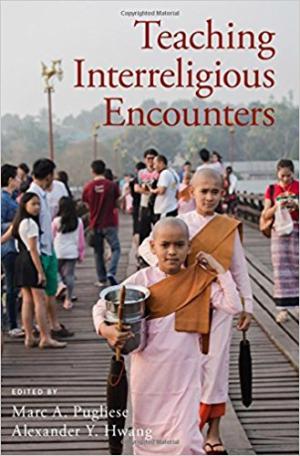
Click Here for Book Review In Teaching Interreligious Encounters, Marc A. Pugliese and Alexander Y. Hwang have gathered together a multidisciplinary and international group of scholar-teachers to explore the pedagogical issues that occur at the intersection of different religious traditions. This volume is a theoretical and practical guide for new teachers as well as seasoned scholars. It breaks the pedagogy of interreligious encounters down into five distinct components. In the first part, essays explore the theory of teaching these encounters; in the second, essays discuss course design. The parts that follow engage practical ideas for teaching textual analysis, practice, and real-world application. Despite their disciplinary, contextual, and methodological diversity, these essays share a common vision for the learning goals and outcomes of teaching interreligious encounters. This is a much-needed resource for any teacher participating in these conversations in our age of globalization and migration, with its attendant hopes and fears.
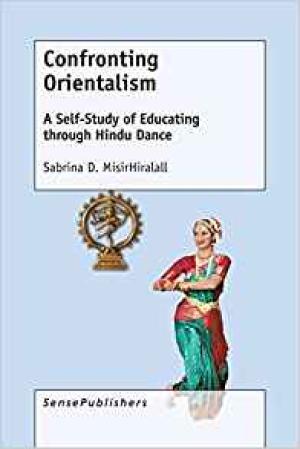
Click Here for Book Review The author aims to use Kuchipudi Indian classical Hindu dance to educate non-Hindus about Hinduism with postcolonialism in mind. This goal arises from her dance experiences and the historical era of imperialism. Colonization occurs when those in power believe there is a need to dominate in a manner that subjugates people. Colonizers created colonies as they moved into territory because they felt there was a need to “civilize” the so-called savages of the land. Postcolonialism is an intellectual discourse that confronts the legacy of colonialism and attempts to de-colonize. With the legacy of colonialism and a postcolonial lens in mind, some research questions arise. How does she, as a Kuchipudi dancer, use Hindu dance to educate non-Hindus about the Eastern literature of Hinduism? For non-Hindus, she feels the power of the exoticizing gaze when she dances, which might very well block the educational intention of the dance. This exoticizing gaze prevents the understanding of the traditional nature of the dance and the introduction to Hinduism as a world religion. The author’s problem is moving the exotic gaze of non-Hindus to an educational gaze that seeks to learn about the ethics of Hinduism in a manner that takes into consideration the multiple perspectives of the complex society we live in today.
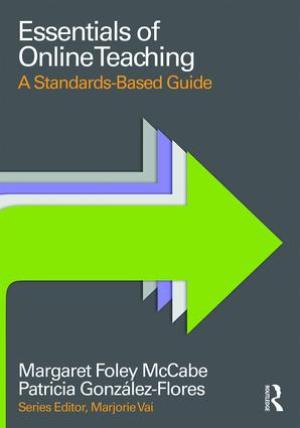
Click Here for Book Review Teachers’ active online participation and engagement with students are critical factors to the success of online courses. Essentials of Online Teaching is a standards-based, straightforward guide to teaching online in higher education, high school and vocational training, or corporate learning environments. This brief but powerful book encourages immediate application of concepts with the help of real-world examples, technical insights, and professional advice. The guide includes: - a practical approach informed by, but not about, relevant learning theories; - clear models and examples from a wide variety of online courses; - teachers’ reflections about their online practice; - a checklist of standards to help guide teaching decisions; and - an accompanying website (www.essentialsofonlineteaching.com) with additional resources. Essentials of Online Teaching addresses key instructional challenges in online teaching and presents the reader with practical solutions for each phase of a course—preparation, beginning, middle, and end. (From the Publisher)
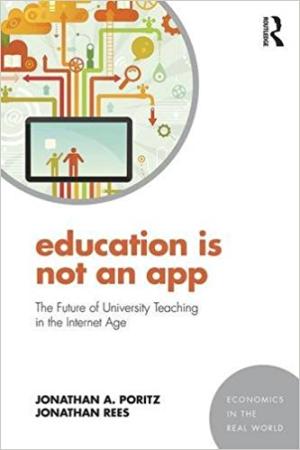
Click Here for Book Review Whilst much has been written about the doors that technology can open for students, less has been said about its impact on teachers and professors. Although technology undoubtedly brings with it huge opportunities within higher education, there is also the fear that it will have a negative effect both on faculty and on teaching standards. Education Is Not an App offers a bold and provocative analysis of the economic context within which educational technology is being implemented, not least the financial problems currently facing higher education institutions around the world. The book emphasizes the issue of control as being a key factor in whether educational technology is used for good purposes or bad purposes, arguing that technology has great potential if placed in caring hands. Whilst it is a guide to the newest developments in education technology, it is also a book for those faculty, technology professionals, and higher education policy-makers who want to understand the economic and pedagogical impact of technology on professors and students. It advocates a path into the future based on faculty autonomy, shared governance, and concentration on the university’s traditional role of promoting the common good. Offering the first critical, in-depth assessment of the political economy of education technology, this book will serve as an invaluable guide to concerned faculty, as well as to anyone with an interest in the future of higher education.
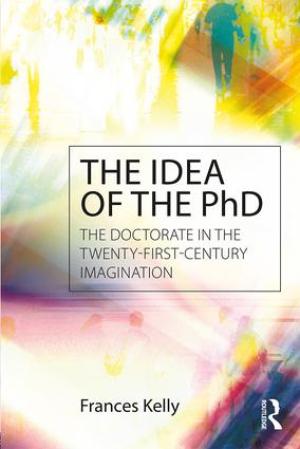
Click Here for Book Review The Idea of the PhD: The doctorate in the twenty-first-century imagination analyses the PhD as it is articulated in diverse areas of contemporary discourse at a time in which the degree is undergoing growth, change and scrutiny worldwide. It considers not just institutional ideas of the PhD, but those of the broader cultural and social domain as well as asking whether, and to what extent, the idea of the Doctor of Philosophy, the highest achievable university award, is being reimagined in the twenty-first century. In a world where the PhD is undergoing significant radical change, and where inside universities, doctoral enrolments are continually climbing, as the demand for more graduates with high-level research skills increases, this book asks the following questions: How do we understand how the PhD is currently imagined and conceptualised in the wider domain? Where will we find ideas about the PhD, from its purpose, to the nature of research work undertaken and the kinds of pedagogies engaged, to the researchers who undertake it and are shaped by it? International in scope, this is a text that explores the culturally inflected representation of the doctorate and its graduates in the imagination, literature and media. The Idea of the PhD contributes to the research literature in the field of doctoral education and higher education. As such, this will be a fascinating text for researchers, postgraduates and academics interested in the idea of the university. (From the Publisher)
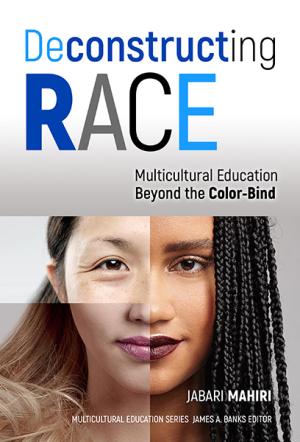
Click Here for Book Review How do socially constructed concepts of race dominate and limit understandings and practices of multicultural education? Since race is socially constructed, how do we deconstruct it? In this important book Mahiri argues that multicultural education needs to move beyond racial categories defined and sustained by the ideological, social, political, and economic forces of white supremacy. Exploring contemporary and historical scholarship on race, the emergence of multiculturalism, and the rise of the digital age, the author investigates micro-cultural practices and provides a compelling framework for understanding the diversity of individuals and groups. Descriptions and analysis from ethnographic interviews reveal how people’s continually evolving, highly distinctive, micro-cultural identities and affinities provide understandings of diversity not captured within assigned racial categories. Synthesizing the scholarship and interview findings, the final chapter connects the play of micro-cultures in people’s lives to a needed shift in how multicultural education uses race to frame and comprehend diversity and identity and provides pedagogical examples of how this shift can look in teaching practices.
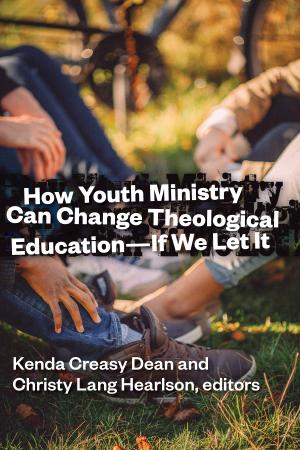
Click Here for Book Review Since 1993, forty-nine theological seminaries have created opportunities for high school students to participate in on-campus High School Theology Programs (HSTPs) that invite them to engage in serious biblical and theological study. Many of the young people who take part in these programs go on to become pastoral or lay leaders in their churches. What has made these programs so successful — especially given the well-documented "crisis of faith" among young people today? In this book thirteen contributors — many of whom have created or led one of these innovative theology programs — investigate answers to this question. They examine the pedagogical practices the HSTPs have in common and explore how they are contributing to the leadership of the church. They then show how the lessons gleaned from these successful programs can help churches, denominations, and seminaries reimagine both theological education and youth ministry.
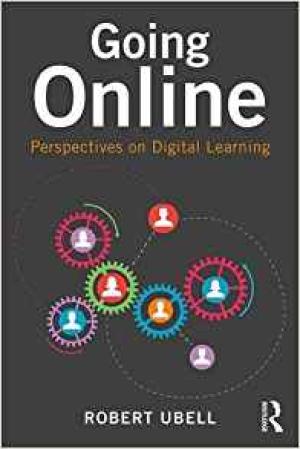
Click Here for Book Review In Going Online, one of our most respected online learning leaders offers insights into virtual education―what it is, how it works, where it came from, and where it may be headed. Robert Ubell reaches back to the days when distance learning was practiced by mail in correspondence schools and then leads us on a tour behind the screen, touching on a wide array of topics along the way, including what it takes to teach online and the virtual student experience. You’ll learn about: -how to build a sustainable online program; -how to create an active learning online course; -why so many faculty resist teaching online; -how virtual teamwork enhances digital instruction; -how to manage online course ownership; -how learning analytics improves online instruction. Ubell says that it is not technology alone, but rather unconventional pedagogies, supported by technological innovations, that truly activate today's classrooms. He argues that innovations introduced online―principally peer-to-peer and collaborative learning―offer significantly increased creative learning options across all age groups and educational sectors. This impressive collection, drawn from Ubell's decades of experience as a digital education pioneer, presents a powerful case for embracing online learning for its transformational potential.
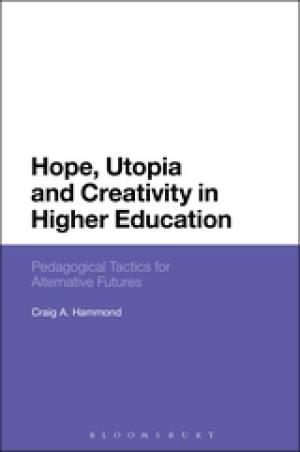
Click Here for Book Review Reappraising ideas associated with Ernst Bloch, Roland Barthes and Gaston Bachelard within the context of a utopian pedagogy, Hope, Utopia and Creativity in Higher Education reframes the transformative, creative and collaborative potential of education offering new concepts, tactics and pedagogical possibilities. Craig A. Hammond explores ways of analysing and democratising not only pedagogical conception, knowledge and delivery, but also the learning experience, and processes of negotiation and peer-assessment. Hammond shows how the incorporation of already existent learner hopes, daydreams, and creative possibilities can open up new opportunities for thinking about popular culture and memory, learning and knowledge, and collaborative communities of support. Drawing together theoretical and cultural material in a teaching and learning environment of empowerment, Hammond illustrates that formative articulations of alternative, utopian futures, across sociological, humanities, and education studies subjects and curricula, becomes possible.